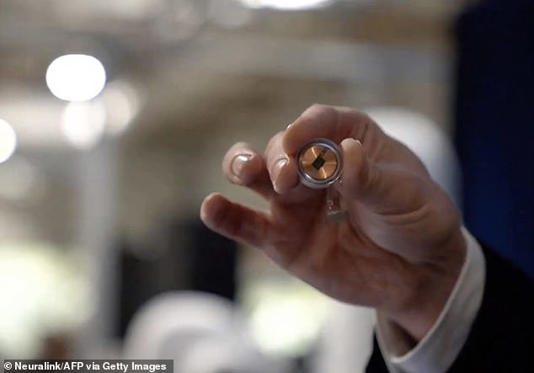The FDA will allow Neuralink to start human trial of its brain-chip device
Elon Musk tweeted his congratulations to the team after the announcement
The device could help numerous conditions from obesity to autism
Also Read– Menopause drug to treat hot flashes wins FDA approval
Human trials are set to start soon for Elon Musk’s brain-chip implants after his company Neuralink gained FDA approval Thursday.
Neuralink posted on social media that the FDA had given the OK for the first-in-human clinical studies.
Human trials are set to start soon for Elon Musk’s brain-chip implants after his company Neuralink gained FDA approval Thursday.
Neuralink posted on social media that the FDA had given the OK for the first-in-human clinical studies.
‘Congratulations Neuralink team!,’ Musk Tweeted after the news.
The move is a milestone after Neuralink struggled to gain earlier approvals.
Musk’s plans for Neuralink have included the device helping both disabled and healthy people cure a range of conditions such as obesity, autism, depression and schizophrenia.
Read More : Top 5 best UK mobile blogs and websites
It could also allow for web browsing and telepathy.


The company made the announcement of the approval Thursday afternoon.
‘This is the result of incredible work by the Neuralink team in close collaboration with the FDA and represents an important first step that will one day allow our technology to help many people,’ Neuralink said in a tweet.
On at least four occasions since 2019, Musk has predicted that his medical device company would begin human trials for a brain implant to treat severe conditions such as paralysis and blindness.
Yet the company, founded in 2016, only sought FDA approval in early 2022 – and the agency rejected the application, seven current and former employees told Reuters in March.
The FDA had pointed out several concerns to Neuralink that needed to be addressed before sanctioning human trials, according to the employees. Major issues involved the lithium battery of the device, the possibility of the implant’s wires migrating within the brain and the challenge of safely extracting the device without damaging brain tissue.
Thursday’s FDA approval comes as U.S. lawmakers are urging regulators to investigate whether the make-up of a panel overseeing animal testing at Neuralink contributed to botched and rushed experiments.
Neuralink has already been the subject of federal probes.
Reuters reported on Dec. 5 that the USDA’s Inspector General was investigating, at the request of a federal prosecutor, potential violations of the Animal Welfare Act, which governs how researchers treat and test certain types of animals.
The probe has also been looking at the USDA’s oversight of Neuralink.









































